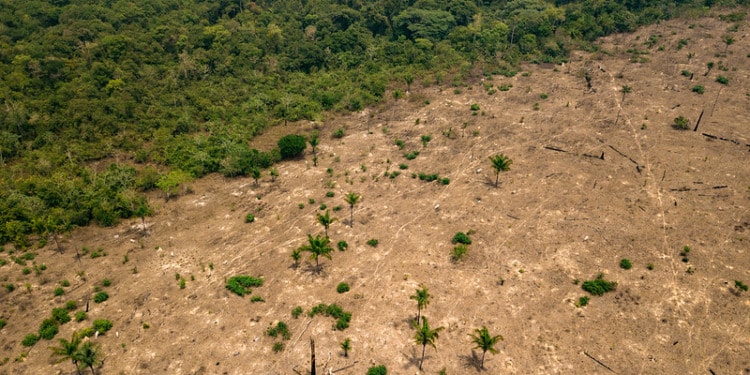On Tuesday, eight Amazon nations united to draft environmental policies, yet the common goal of preventing further deforestation remained unresolved. The summit’s outcomes present a mosaic of accomplishments, missed chances, and uncertainties for the future.
Unified Policies and Measures
The eight Amazon nations, which include Bolivia, Brazil, Colombia, Ecuador, Guyana, Peru, Suriname, and Venezuela, came together under the leadership of Brazilian President Luiz Inacio Lula Da Silva to promote environmental preservation. Their goal is to achieve sustainable development, reduce deforestation, and end organized crime that supports it.
“The Amazon is our passport to a new relationship with the world, a more symmetric relationship, in which our resources are not exploited to benefit few, but rather valued and put in the service of everyone.”
— Brazilian President Luiz Inacio Lula Da Silva speaking at the Amazon summit.
The outcome of these discussions was the Belém Declaration, which highlights the importance of collaboration on water management, healthcare, coordinated negotiating positions at climate summits, and the pursuit of sustainable development.
Positive progress has already been made through this collective effort.
For example, Colombia has banned new oil exploration, showing its dedication to environmental responsibility. Alongside this, Ecuador has set an ambitious target to reach carbon neutrality by 2050 and significantly reduce deforestation by 2025.
Beyond the summit discussions, around 20,000 people from different Amazon countries, including indigenous communities and concerned citizens, united their voices to demand greater safeguards for indigenous rights and sustainable development.
🌎 "We continue to reaffirm that it is necessary to have 80% of the biodiversity of the Amazon protected by 2025".
At the #AmazonSummit, @GuajajaraSonia , Brazil's minister of Indigenous Peoples, addresses the role of Indigenous peoples in protecting the Amazon forest. pic.twitter.com/q9FjqsnoT0
— Avaaz (@Avaaz) August 7, 2023
Amongst those present was Uyunkar Domingo Peas Nampichkai, an Ecuadorian activist. He expressed optimism for the upcoming referendum on August 20th. The referendum will determine whether oil exploration should be banned in the Yasuní National Park, a biodiversity hotspot near the Peruvian border. Peas remarked that this is a crucial moment for Indigenous people and humanity, saying:
“Everyone knows we are reaching the point of no return, so this is crucial for Indigenous people and … the whole of humanity.”
RELATED ARTICLES: Amazon Deforestation Falls 66% in a Year: Is the Situation Finally Turning Around? | Climate Change, Zoos, and Animal Conservation: Adapting to the Times | Why UN Climate Science Must Keep Shaping Global Climate Policy
Challenges and Unfulfilled Objectives
Despite Colombia’s President Petro campaigning to end new oil development in the Amazon, other Amazon countries rejected his proposal. Petro argued that gradually transitioning away from fossil fuels would only delay action to stop climate change.
Notably, Bolivia and Venezuela have not endorsed the 2021 agreement to halt deforestation by 2030.
This hesitance is despite the evident consequences of deforestation. These range from the loss of biodiversity to the upheaval of indigenous communities and the disruption of vital water cycles.
The absence of a shared deforestation reduction goal poses a significant challenge in combating climate change effectively. Without a clear stance on deforestation, progress in reducing it in the Amazon may be hindered.
It is also concerning that each country has decided to pursue its own deforestation goals due to ongoing disagreements.
The Forest Alliance and WWF have been vocal opponents of this approach, citing potential negative consequences as their primary concern. The WWF Global Conservation Director has recommended that importing countries with greater global presence should take the lead when nations fail to cooperate. Similarly, The Forest Alliance suggests stronger procurement policies and trade deals and importing countries to support producers in protecting their forests and other ecosystems.
Bolivian President Luis Arce expressed these concerns during the summit. He drew attention to the negative effects of capitalism on the Amazon nations, citing unregulated expansion and the exploitation of natural resources as examples.
What Lays Ahead?
Certain developments at the summit deserve celebration for protecting the “earth’s lungs” against deforestation.
One of these is a commitment to protect indigenous rights and safeguards and an alliance against forest destruction. In addition, they’ve established an authoritative Amazon rainforest science entity, similar to the UN’s International Panel on Climate Change.
Even despite the various shortcomings, the summit underscores the vital balance between growth and conservation in climate agreements.
Editor’s Note: The opinions expressed here by the authors are their own, not those of Impakter.com — In the Featured Photo: Amazon deforestation driven by animal farming. Featured Photo Credit: Animal Equity International








